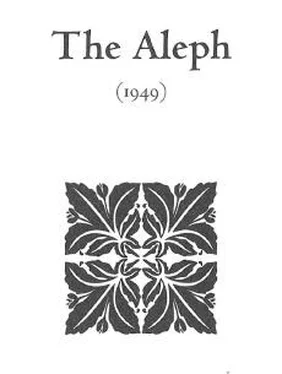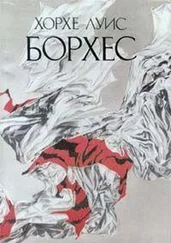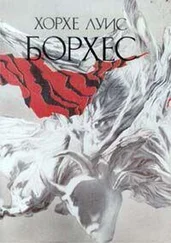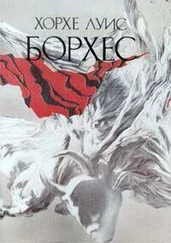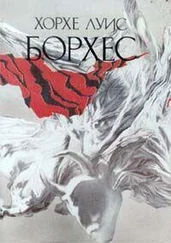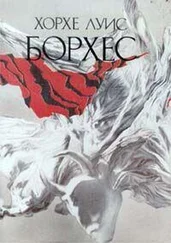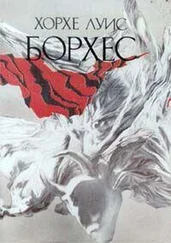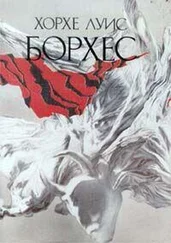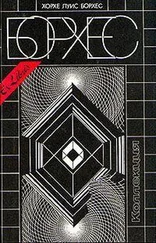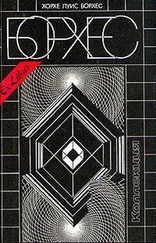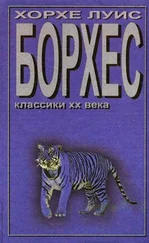Хорхе Борхес - Collected Fictions
Здесь есть возможность читать онлайн «Хорхе Борхес - Collected Fictions» весь текст электронной книги совершенно бесплатно (целиком полную версию без сокращений). В некоторых случаях можно слушать аудио, скачать через торрент в формате fb2 и присутствует краткое содержание. Год выпуска: 1999, ISBN: 1999, Издательство: Penguin (UK), Жанр: Старинная литература, на английском языке. Описание произведения, (предисловие) а так же отзывы посетителей доступны на портале библиотеки ЛибКат.
- Название:Collected Fictions
- Автор:
- Издательство:Penguin (UK)
- Жанр:
- Год:1999
- ISBN:9780140286809
- Рейтинг книги:5 / 5. Голосов: 1
-
Избранное:Добавить в избранное
- Отзывы:
-
Ваша оценка:
- 100
- 1
- 2
- 3
- 4
- 5
Collected Fictions: краткое содержание, описание и аннотация
Предлагаем к чтению аннотацию, описание, краткое содержание или предисловие (зависит от того, что написал сам автор книги «Collected Fictions»). Если вы не нашли необходимую информацию о книге — напишите в комментариях, мы постараемся отыскать её.
Collected Fictions — читать онлайн бесплатно полную книгу (весь текст) целиком
Ниже представлен текст книги, разбитый по страницам. Система сохранения места последней прочитанной страницы, позволяет с удобством читать онлайн бесплатно книгу «Collected Fictions», без необходимости каждый раз заново искать на чём Вы остановились. Поставьте закладку, и сможете в любой момент перейти на страницу, на которой закончили чтение.
Интервал:
Закладка:
We also have knowledge of another superstition from that period: belief in what was termed the Book-Man. On some shelf in some hexagon, it was argued, there must exist a book that is the cipher and perfect compendium of all other books, and some librarian must have examined that book; this librarian is analogous to a god. In the language of this zone there are still vestiges of the sect that worshiped that distant librarian. Many have gone in search of Him. For a hundred years, men beat every possible path— and every path in vain. How was one to locate the idolized secret hexagon that sheltered Him? Someone proposed searching by regression: To locate book A, first consult book B, which tells where book A can be found; to locate book B, first consult book C, and so on, to infinity.... It is in ventures such as these that I have squandered and spent my years. I cannot think it unlikely that there is such a total book [3] on some shelf in the universe. I pray to the unknown gods that some man—even a single man, tens of centuries ago—has perused and read that book. If the honor and wisdom and joy of such a reading are not to be my own, then let them be for others. Let heaven exist, though my own place be in hell. Let me be tortured and battered and annihilated, but let there be one instant, one creature, wherein thy enormous Library may find its justification.
Infidels claim that the rule in the Library is not "sense," but "non-sense," and that "rationality" (even humble, pure coherence) is an almost miraculous exception. They speak, I know, of "the feverish Library, whose random volumes constantly threaten to transmogrify into others, so that they affirm all things, deny all things, and confound and confuse all things, like some mad and hallucinating deity." Those words, which not only proclaim disorder but exemplify it as well, prove, as all can see, the infidels' deplorable taste and desperate ignorance. For while the Library contains all verbal structures, all the variations allowed by the twenty-five orthographic symbols, it includes not a single absolute piece of nonsense. It would be pointless to observe that the finest volume of all the many hexagons that I myself administer is titled Combed Thunder, while another is titled The Plaster Cramp, and another, Axaxaxasmio. Those phrases, at first apparently incoherent, are undoubtedly susceptible to cryptographic or allegorical "reading"; that reading, that justification of the words' order and existence, is itself verbal and, ex hypothesi, already contained somewhere in the Library. There is no combination of characters one can make— dhcmrlchtdj, for example—that the divine Library has not foreseen and that in one or more of its secret tongues does not hide a terrible significance. There is no syllable one can speak that is not filled with tenderness and terror, that is not, in one of those languages, the mighty name of a god. To speak is to commit tautologies. This pointless, verbose epistle already exists in one of the thirty volumes of the five bookshelves in one of the countless hexagons—as does its refutation. (A number n of the possible languages employ the same vocabulary; in some of them, the symbol "library" possesses the correct definition "everlasting, ubiquitous system of hexagonal galleries," while a library—the thing—is a loaf of bread or a pyramid or something else, and the six words that define it themselves have other definitions. You who read me—are you certain you understand my language?)
Methodical composition distracts me from the present condition of humanity. The certainty that everything has already been written annuls us, or renders us phantasmal. I know districts in which the young people prostrate themselves before books and like savages kiss their pages, though they cannot read a letter. Epidemics, heretical discords, pilgrimages that inevitably degenerate into brigandage have decimated the population. I believe I mentioned the suicides, which are more and more frequent every year. I am perhaps misled by old age and fear, but I suspect that the human species— the only species—teeters at the verge of extinction, yet that the Library— enlightened, solitary, infinite, perfectly unmoving, armed with precious volumes, pointless, incorruptible, and secret—will endure.
I have just written the word "infinite." I have not included that adjective out of mere rhetorical habit; I hereby state that it is not illogical to think that the world is infinite. Those who believe it to have limits hypothesize that in some remote place or places the corridors and staircases and hexagons may, inconceivably, end—which is absurd. And yet those who picture the world as unlimited forget that the number of possible books is not. I will be bold enough to suggest this solution to the ancient problem: The Library is unlimited but periodic. If an eternal traveler should journey in any direction, he would find after untold centuries that the same volumes are repeated in the same disorder—which, repeated, becomes order: the Order. My solitude is cheered by that elegant hope. [4]
Mar del Plata
[1] The original manuscript has neither numbers nor capital letters; punctuation is limited to the comma and the period. Those two marks, the space, and the twenty-two letters of the alphabet are the twenty-five sufficient symbols that our unknown author is referring to. [Ed. note.]
[2] In earlier times, there was one man for every three hexagons. Suicide and diseases of the lung have played havoc with that proportion. An unspeakably melancholy memory: I have sometimes traveled for nights on end, down corridors and polished staircases, without coming across a single librarian.
[3] I repeat: In order for a book to exist, it is sufficient that it be possible. Only the impossible is excluded. For example, no book is also a staircase, though there are no doubt books that discuss and deny and prove that possibility, and others whose structure corresponds to that of a staircase.
[4] Letizia Alvarezde Toledo has observed that the vast Library is pointless; strictly speaking, all that is required is a single volume, of the common size, printed in nine- or ten-point type, that would consist of an infinite number of infinitely thin pages. (In the early seventeenth century, Cavalieri stated that every solid body is the super-position of an infinite number of planes.) Using that silken vademécum would not be easy: each apparent page would open into other similar pages; the inconceivable middle page would have no "back."
The Garden of Forking Paths
For Victoria Ocampo
On page 242 of The History of the World War, Liddell Hart tells us that an Allied offensive against the Serre-Montauban line (to be mounted by thirteen British divisions backed by one thousand four hundred artillery pieces) had been planned for July 24, 1916, but had to be put off until the morning of the twenty-ninth. Torrential rains (notes Capt. Liddell Hart) were the cause of that delay—a delay that entailed no great consequences, as it turns out. The statement which follows—dictated, reread, and signed by Dr. Yu Tsun, former professor of English in the Hochschule at Tsingtao— throws unexpected light on the case. The two first pages of the statement are missing.
· · ·
... and I hung up the receiver. Immediately afterward, I recognised the voice that had answered in German. It was that of Capt. Richard Madden. Madden's presence in Viktor Runeberg's flat meant the end of our efforts and (though this seemed to me quite secondary, or should have seemed) our lives as well. It meant that Runeberg had been arrested, or murdered. [1]
Читать дальшеИнтервал:
Закладка:
Похожие книги на «Collected Fictions»
Представляем Вашему вниманию похожие книги на «Collected Fictions» списком для выбора. Мы отобрали схожую по названию и смыслу литературу в надежде предоставить читателям больше вариантов отыскать новые, интересные, ещё непрочитанные произведения.
Обсуждение, отзывы о книге «Collected Fictions» и просто собственные мнения читателей. Оставьте ваши комментарии, напишите, что Вы думаете о произведении, его смысле или главных героях. Укажите что конкретно понравилось, а что нет, и почему Вы так считаете.
